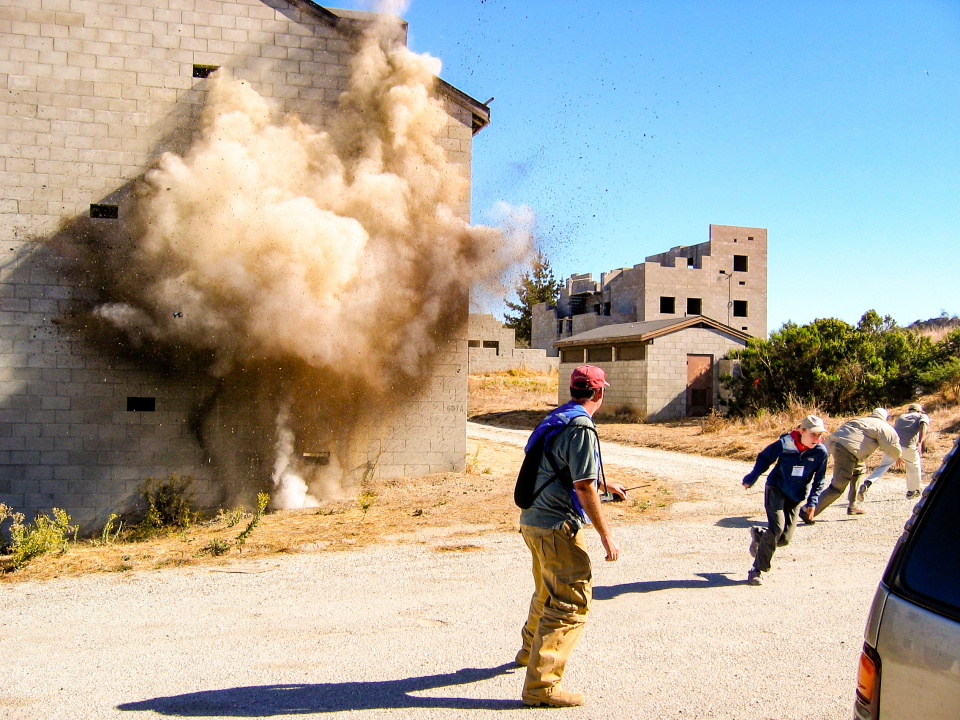Resilience in the front line of Humanitarian work

International humanitarian work is challenging, dangerous and incredibly rewarding. But contrary to common understanding most of this work is not carried out by expatriate Europeans but by people employed locally. It is likely that nearly 90% of people employed to deliver humanitarian assistance come directly from the context in which that assistance is being delivered.
These staff are, by definition, resilient as they have not only survived the event or circumstances leading to the need to deliver humanitarian assistance, but they also demonstrate considerable ability to perform complex and dangerous tasks in order to meet the needs of their communities.
Yet, these staff are also the ones who have the highest death rate of all humanitarians. Since 2000 globally more than 3800 humanitarians have been killed, wounded or kidnapped. The majority of these are nationally employed staff. (Humanitarian Outcomes (2016), Aid Worker Security Database, https://aidworkersecurity.org/ )
These are the largely forgotten people. Resilient, competent, expert servants of their own people, killed in the activity of providing support. And, too often abandoned by their international employers.
Incredibly, survivors and family members continue to be hugely appreciative of the humanitarian agencies that employed them and the donations that made such activity possible. There have been very few cases brought against humanitarian agencies for lack of Duty of Care. This is most likely due to a combination of factors ranging from positive regard toward such agencies to lack of access to formal grievance or legal processes.
Many of us have been extremely concerned about these circumstances for many years. The French INGO Action contre la Faim (ACF) has always been concerned by the protection of its aid workers. But on 4th August 2006, 17 ACF staff were lined up in their office and summarily executed. They were bringing relief to the population around Muttur, a town in north-east Sri Lanka. Those responsible for this crime have never been brought to justice.
ACF commenced a campaign to begin a process of provision of protection to these workers.
They state: ACF rejects the impunity that too often follows an attack on aid workers or humanitarian facilities. These crimes constitute an unacceptable attack on our shared values and the norms that safeguard humanity. They are not an inevitable consequence of war, but represent a failure of parties to conflict to respect and facilitate neutral and principled humanitarian action, which is their obligation under IHL, and a failure of the international community to speak out and demand accountability for the perpetrators of these crimes.
Protegeons les Humanities’ / Protect Aid Workers, is a clarion call for humanitarian agencies to recognise the costs that national aid workers and their families carry on behalf of the humanitarian world. The campaign recognises the inherent resilience of individual staff and family members, but notes that employers can be responsible for eroding and compromising this resilience.
Employers create working contents that either enhance resilience or compromise resilience. This is an active choice. Working structures and organisational processes are designed and implemented by human beings. As such the agencies that deploy staff, enforce policy and oversee practice must hold responsibility for the well-being of their staff.
ACF calls for the creation of a United Nations Special Rapporteur to be the advocate for humanitarian staff. I applaud this call and am pleased to support this campaign. Check out the campaign at http://www.protectaidworkers.org/
Read next
A Brief Collapse of Time
We are in lockdown. What day is it? One of the most common comments on social media is the old joke about yesterday, today, tomorrow, everyday.
Read more50 Dead - Resilience Reflection #3 - Social Cohesion
We know that relationships are both protective and growth-promoting. The concept of social support has been discussed in the literature for many years, and we are beginning to understand just...
Read more

